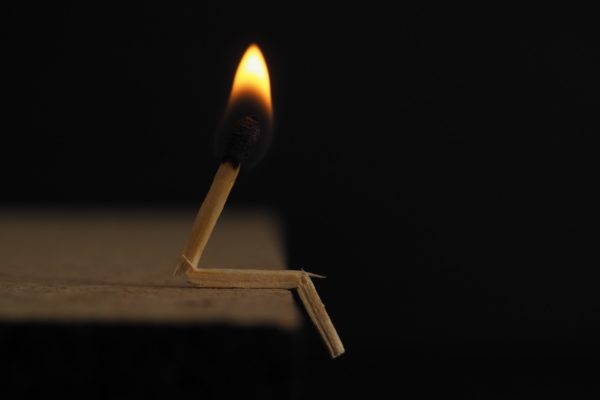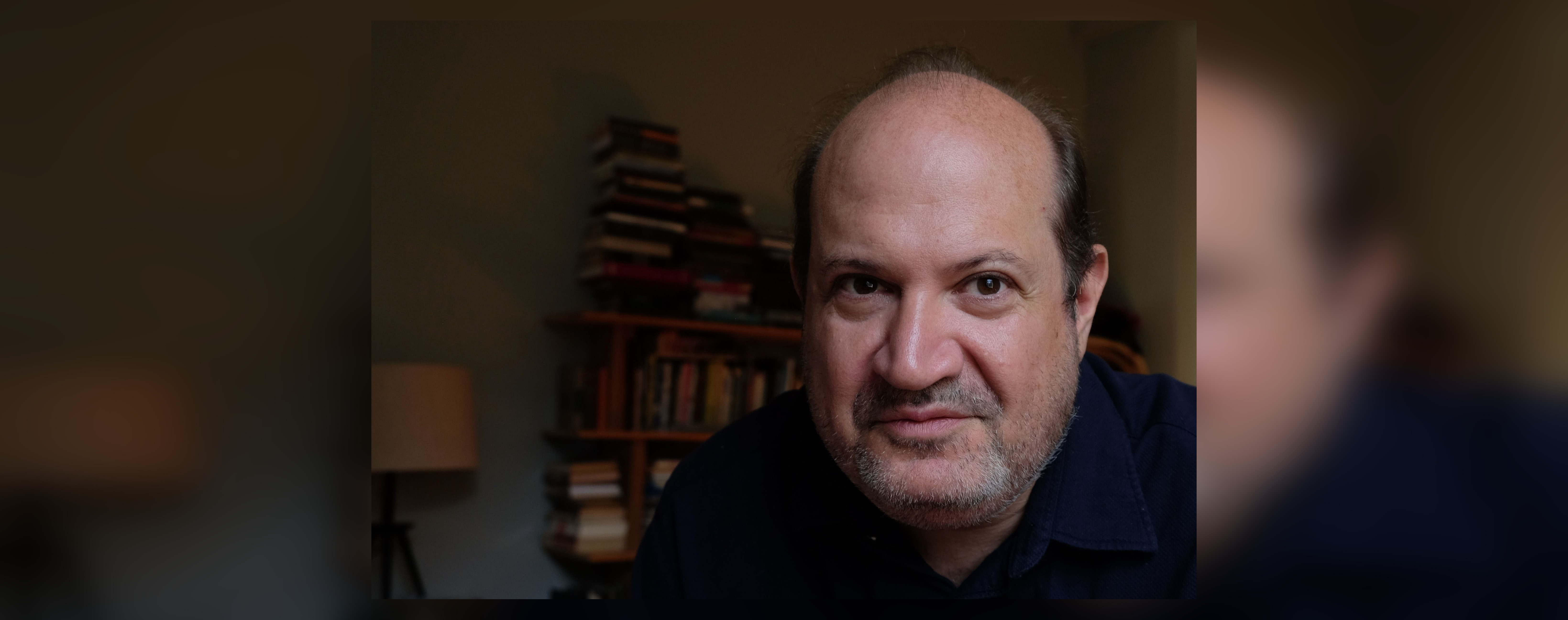By our scalps the soldiers dragged us into the kitchen, knocking over the table my husband had built, and told us to keep our heads down. “Don’t look up,” one of them said to my daughter, “or we’ll shoot your eyes out and leave you for the dogs.” He said this just before they covered our heads with our pillowcases and took their rifles to my husband’s face.
We sat there in darkness, the three of us, as they tore through our home in search of something that didn’t exist. It was the sound of a life being taken. When they were done and all we could hear was the weight of boots over paper and glass, they asked me if I had anything to say to my family.
“Something to say?”
One of the soldiers laughed and said, “We gave you a chance.” I felt my daughter’s hand grab at my ankle as they took me outside and put me in a car. She unleashed a scream I didn’t know she had in her. Once the door was shut, two shots were fired.
More than a week had passed before anyone came to see me. My only company was the clock above the door, which had been hung upside down. On the ninth day, a guard came to empty the bucket. He was just boy, ten maybe twelve years old at most, with eyes as green as my daughter’s. He said nothing. On his way out, he left the door ajar as if tempting me to escape. But I didn’t move. I just sat there on the floor like a dog whose fight had been beaten out of him.
Moments later a man with a cigar entered the cell. He was much smaller than on TV, but it wasn’t his size that mattered. He could have been half as tall and twice as thin. It was immediately clear why people feared this man. In his eyes, there was a maniacal certainty that promised he would kill you slowly, with your most cherished possessions, and then find a way to bring you back so he could do it all over again. He was the colonel.
“There she is,” he said, “the writer who inspired a rebellion. Are you hungry?” How does one respond to a man who uses children to fight his wars? Out of fear of saying the wrong thing, I said nothing.
“Of course you’re hungry,” he said. “You’ve had nothing but water and dry noodles. Here.” He handed me a notebook, some pencils, and a lollipop with a worm in the center.
“Fill this notebook with memories of food,” he said, demonstrating his capacity. “Show me the meals you shared with your family. Make it so I can smell every dish. If you do this by morning, you can have some breakfast.” Before he closed the door, he turned and said, “If you’re feeling weak, you should start with the lollipop. The worm is high in protein.”
In the morning, the colonel returned with the young guard who was holding a bowl of oatmeal and a glass of orange juice. He put the two on the floor and then left as the colonel began to read from the notebook. For almost an hour he stood there, reading in silence as the oatmeal cooled and the orange juice warmed. When he was finished, he lit a fresh cigar.
“You and I,” the colonel said, “we’re not so different. I also grew up eating liver with onions. My mother said we needed the iron.” He blew a ring of smoke toward the bulb above. “It’s because of her that I fucking hate liver.” From his back pocket, he pulled another notebook and lollipop and dropped them on the ground.
“Fill this,” he said. “Tell me what you miss about your daughter.” And so it went for many years, words for food every few days. This was our agreement. This was the colonel’s power.
Tell me how you met your husband. Tell me about the day you gave birth to your daughter. Tell me how the two of you made love. Between notebooks and lollipops, I wrote to the beat of bombs in the distance as the young guard grew into a young man who never spoke but risked a smile from time to time.
One night, while dreaming about making love to the young guard, I woke to find the colonel sitting on a stool, watching me. It was as if he were studying me, trying to understand something that was beyond him. He looked satisfied.
“Do you know how many men I’ve lost because of you?” I shook my head.
“Give me a number.”
“Thousands?”
“That’s not a number. Give me a number.”
“Ten thousand?”
“It’s a shame how you underestimate yourself.” It was impossible not to smile.
“Why am I still alive?”
“It’s a good question. I don’t have an answer for you, but I know this: Today is a special day. Do you know what today is?” Despite the upside down clock above the door, my sense of time was lost long ago.
“Today,” the colonel said, “you turn fifty.” He was lying. Years had passed—I knew this, I could feel it—but had it really been more than a decade since the colonel’s men came to our home?
“Because it’s your birthday,” he said. “I have a gift for you. Come outside with me.” As soon as we reached the courtyard of the prison, I could see smoke trails in the sky and hear gunfire in the distance. But fresh air and open space were too much. The young guard caught me as my knees gave out.
The colonel led me to two small mounds covered in tarps. One was half the size of the other. This was the colonel’s gift. This was his power.
“Do you know what this is?”
“I know.”
“Humor me.”
“My family.”
“Your family? What kind of monster do you think I am? You think I would keep the bodies of your family for all these years so I could give them to you on your birthday? That’s not your family. No, that’s your cake. In fact, as you can see, you get two cakes. Show her the cakes.”
The guards pulled off the tarps. “You see?” He was right. It wasn’t my husband or my daughter. They were the notebooks I’d been filling for years. There were hundreds of them. The colonel pulled one from the pile and opened it. He read a passage I’d written about the first time we gave our daughter a bath in the sink.
“It’s beautiful,” he said. “You make even a man like myself want to bring a little girl into this horrible world just so I can know this kind of moment.” He ripped the page out and handed it to me. “Read the rest of it for me, please, and slowly.”
As I spoke memories I’d forgotten, the colonel smoked his cigar and closed his eyes and smiled. When I was finished, he said thank you and then placed his cigar into the bottom of the page until a small flame took shape. I hadn’t felt warmth like that since the night they came for me. The colonel took a knee and pointed at the base of the pile. “Put it right here.”
We watched the flame spread across the notebooks, across a lifetime in words, until it grew into a pair of blazing heaps that whipped at the sky.
“Now,” the colonel said, “before you blow it out, I want you to tell me one more thing. What will you wish for?”
As I pictured all the ways I wanted to kill this man, the colonel dropped to his knees and fell into the fire. I later learned the rebel sniper who took the colonel out that night was only fifteen years old. She would go on to write a book that would be celebrated abroad and burned in her own country.
Chad Tsuyuki holds an MFA from Long Beach State and teaches English at MiraCosta College. Previous work has appeared in Pearl, TreeHouse, Beside the City of Angels: An Anthology of Long Beach Poetry and elsewhere. He’s currently working on a sabbatical project dedicated to flash fiction.
—




